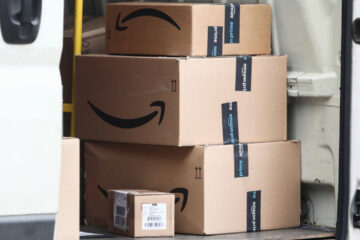It is no secret that Target (TGT) has faced challenges ever since it decided to scale back a major yearslong commitment it made to its employees and customers.
In January, the retail giant revealed that it will discontinue several of its diversity, equity, and inclusion initiatives, including advancing the careers of Black employees, implementing anti-racism training for staff members, promoting Black-owned businesses, and sourcing products from Black suppliers.
💵💰Don’t miss the move: Subscribe to TheStreet’s free daily newsletter 💰💵
It also withdrew its participation in the Human Rights Campaign survey, which tracks LGBTQ+ corporate policies and practices, and discontinued its three-year DEI goals.
Related: Target faces another massive boycott from customers
The move from Target sparked outrage from consumers, and soon after, boycotts erupted. During the first quarter of 2025, the number of customers visiting Target stores per location declined by 4.8% year-over-year, according to recent data from Placer.ai.
Target also revealed in its latest earnings report that while its comparable digital sales increased by 4.7% year-over-year, its comparable store sales decreased by 3.8% during the quarter.
During an earnings call last month, Target CEO Brian Cornell said that the company is “not satisfied” with its recent performance and emphasized that it is operating in an “exceptionally challenging environment” that has harmed foot traffic and sales.
“We faced several additional headwinds this quarter, including five consecutive months of declining consumer confidence, uncertainty regarding the impact of potential tariffs, and the reaction to the updates we shared on Belonging in January,” said Cornell during the call.
Target has lagged behind competitors recently.
Image source: Universal Images Group via Getty Images
Target suffers a major loss
Now, for the fourth consecutive month this year, Target’s foot traffic in its store declined by 1.6% year-over-year in May, according to new data Placer.ai shared with TheStreet. This comes after its foot traffic shrank by 9% in February, 6.5% in March, and 3.3% in April.
Target lagged behind competitors such as Walmart, Costco, and Best Buy, which all experienced increased traffic in their stores in May.
This decline comes during a time when Target’s reputational scores also recently took a hit, according to data from Reputation analytics firm Caliber, which Retail Brew obtained.
Related: Target CEO admits a major mistake amid boycotts from customers
Between January and May, Target’s Integrity Score, which is based on the proportion of consumers Caliber surveyed agree with the statement “Target behaves responsibly,” fell from 65 to 58.
The retail giant’s Leadership Score, based on the degree to which customers agreed with the statement “Target demonstrates leadership,” also declined from 65 to 58.
The number of consumers who agreed with the statement that they “would recommend Target to others, if given the chance” also caused Target’s Recommendation Rate to dip by 24.5% between January and May.
“This is concerning,” Caliber CEO Shahar Silbershatz told Retail Brew. “There is a negative trend here. This is going to continue to snowball, and it’s a problem.”
Target CEO has been determined to pick up the pieces
Target’s CEO has recently been laser-focused on winning back customers. During the earnings call last month, Cornell said that Target will open a new Enterprise Acceleration Office, which will focus on simplifying the company’s operations.
In addition, Target will make organizational changes to “bring even more clarity and speed” to its business practices and strategy advancement.
More Retail:
Costco quietly plans to offer a convenient service for customersT-Mobile pulls the plug on generous offer, angering customersKellogg sounds alarm on unexpected shift in customer behavior
He also said that Target has been working “tirelessly” to prevent potential tariff-related price increases in its stores, which threaten to scare away frugal customers.
“As a company that aims to deliver great products and outstanding value, we’re focused on supporting American families as they manage their budgets,” said Cornell. “We have many levers to use in mitigating the impact of tariffs, and price is the very last resort.”
Some of those levers include negotiating with vendor partners, reevaluating assortment decisions, changing country of production, and adjusting order timing.


